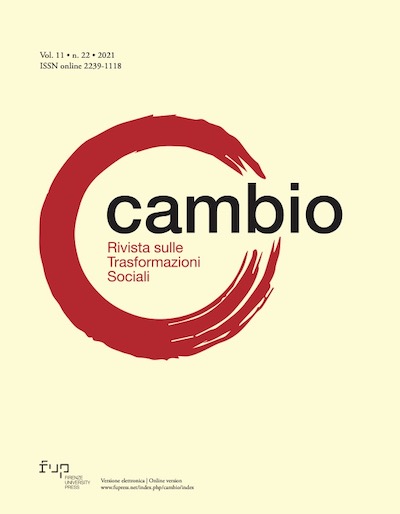Hikikomori italiani durante l’emergenza Covid-19: fra ridefinizione del sé e protagonismo in ambiente digitale
Published 2022-08-03
Keywords
- Italian hikikomori,
- COVID-19,
- digital environment,
- motivations
How to Cite
Abstract
Hikikomori youngsters engage in a voluntary and conscious withdrawal from all social relationships via physical presence or direct interaction with a negative impact on school performance, relational abilities, self-esteem, and perceived self-efficacy. This research explores the psychological, social, and imaginary reactions of Italian hikikomori youngsters to the measures to contain the spread of the Covid-19 during the generalized lockdown and the subsequent period (of the introduction of the regional colour system for restrictions). The results show a detachment from conceptual overlaps between their condition and the lived experience of people during home confinement under the COVID-19 containment regulations. The research also allows to identify some behavioural profiles that, in a pandemic context, make it possible not only to frame typical modes of being hikikomori in a digital environment, but also to review part of the literature on the individual and social motivations at the origin of this phenomenon and to highlight some peculiarities of the Italian case. In the concluding part, considering the dimensions identified, a typology is also proposed tracing four ways of being hikikomori in the digital environment.


